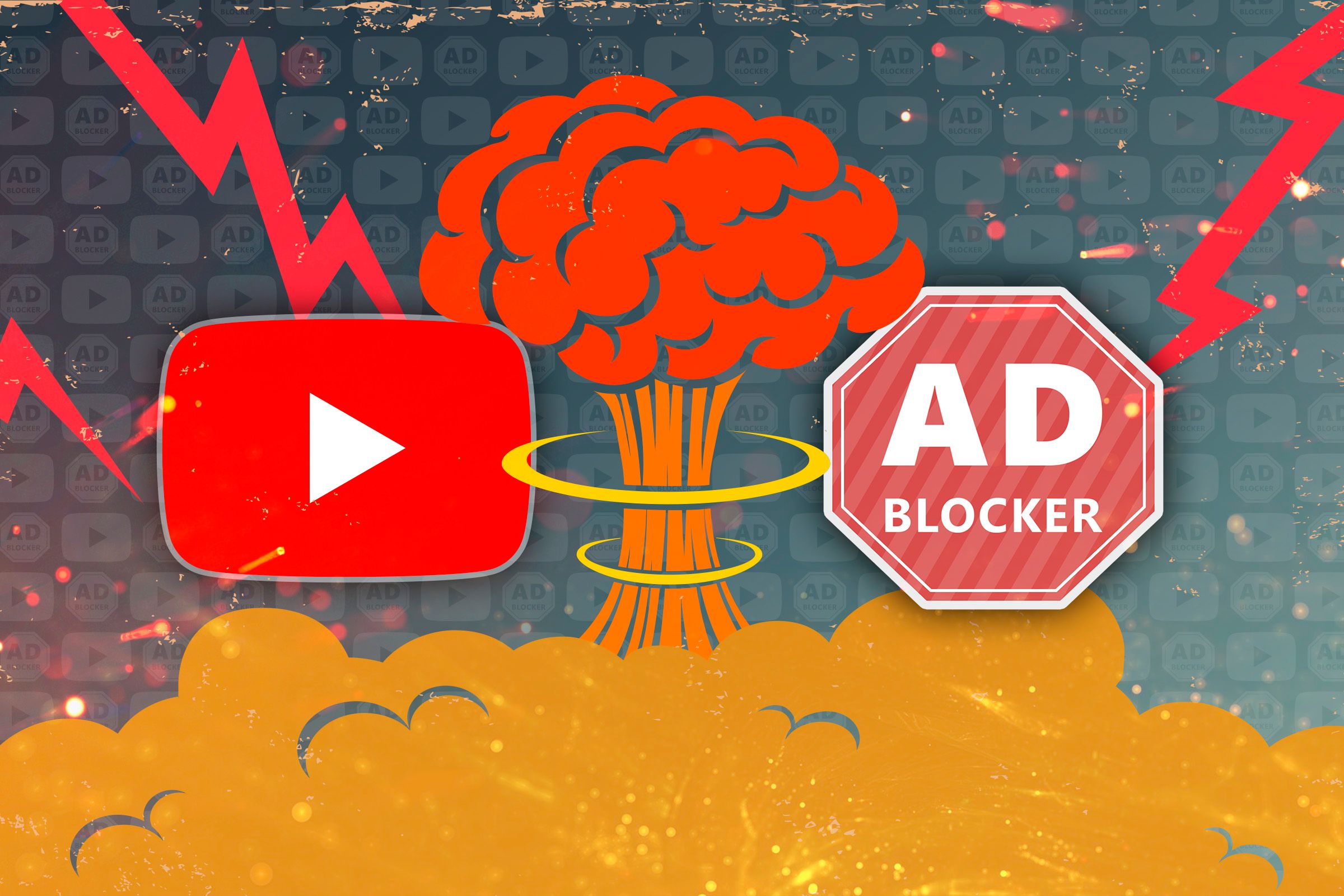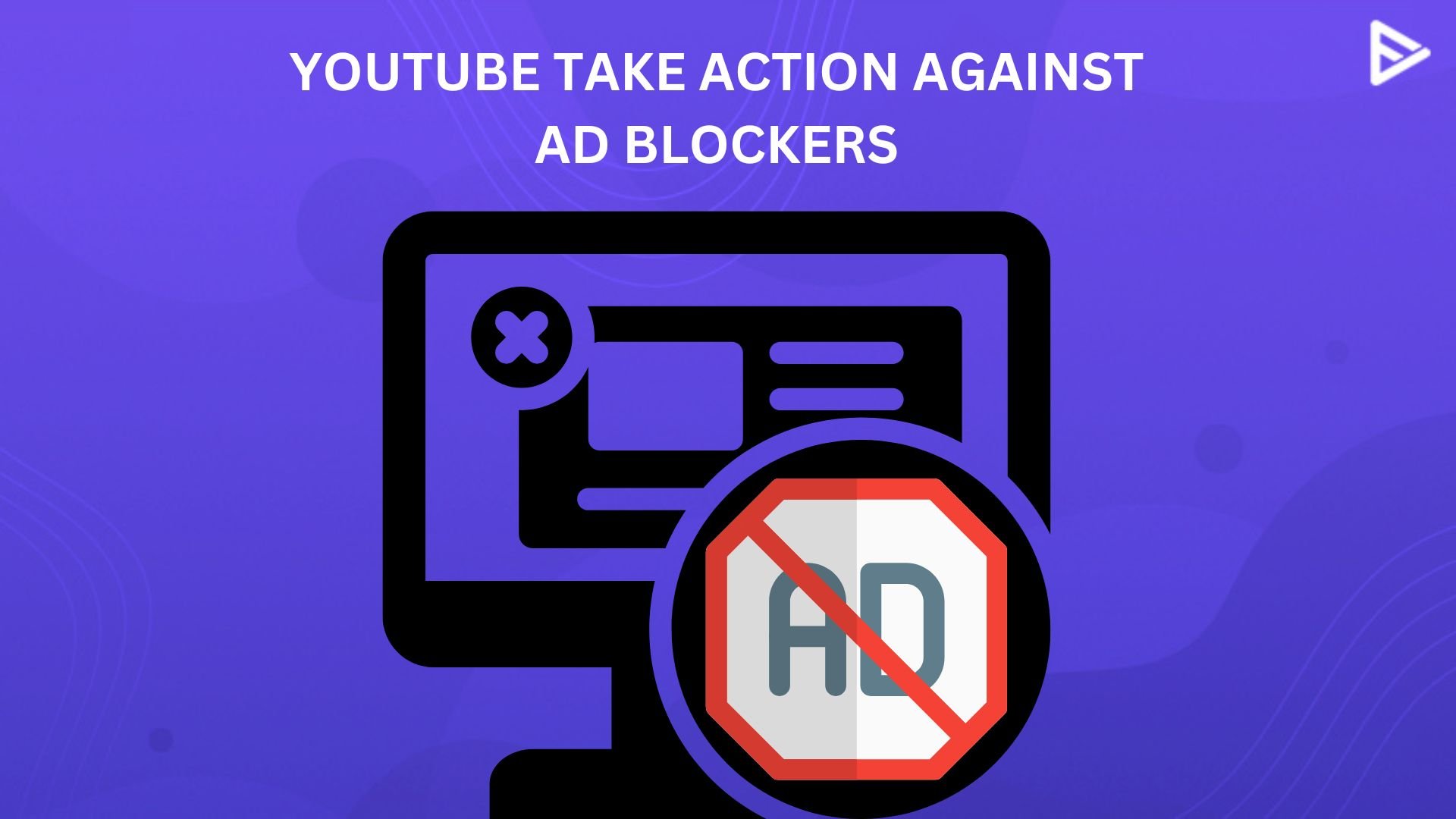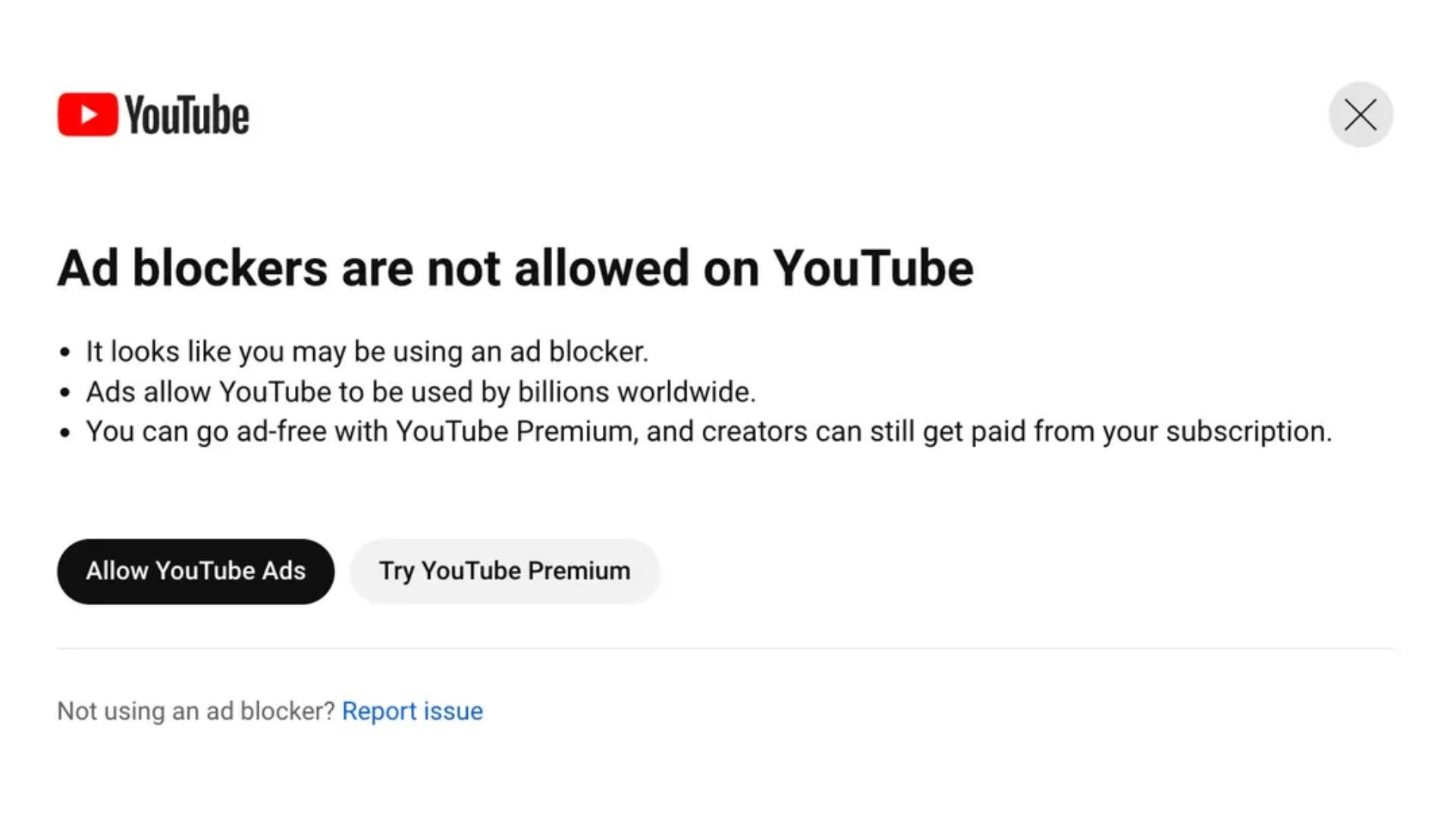Do Ad Blockers Violate YouTube's Terms? A Deep Dive Into The Controversy
Ad blockers have become a hot topic in the digital world, and when it comes to platforms like YouTube, the debate gets even more intense. Are ad blockers really violating YouTube's terms, or is it just a gray area that users and creators need to navigate? Let’s dive into the nitty-gritty and uncover the truth behind this digital battleground.
Let’s be real here, ads can be annoying as heck. You’re watching your favorite YouTube video, and bam—there’s a 30-second ad that you can’t skip for the first five seconds. It’s enough to make you wanna pull your hair out. But here’s the thing: YouTube relies heavily on ads to generate revenue, and that’s where ad blockers come into play.
So, are ad blockers really the bad guys here? Or is YouTube being a little too protective of their ad-driven ecosystem? Stick around, because we’re about to break it all down for you in a way that’s easy to digest, yet packed with insights you won’t find anywhere else.
- Unveiling The Mysteries Of October Star Sign Unlock Your Zodiac Destiny
- Deborah Bollman The Remarkable Story Of A Trailblazer In Her Field
What Are Ad Blockers Anyway?
First things first, let’s talk about what ad blockers actually are. Ad blockers are browser extensions or software tools designed to block ads from appearing on websites and platforms like YouTube. They’re like your personal bouncers, keeping those pesky ads out of your digital space.
Now, here’s the kicker: ad blockers don’t just block the ads you see. They also block the tracking cookies and scripts that websites use to collect data about your browsing habits. So, in a way, they’re not just protecting your viewing experience—they’re also protecting your privacy.
How Do Ad Blockers Work?
Ad blockers work by intercepting ad requests before they reach your browser. They use a combination of filters and rules to identify and block ad-related content. Think of it like a security system that flags anything that looks suspicious and keeps it out of your digital space.
- Howie Mandel Death Debunking The Rumors And Celebrating A Legend
- Nra Dana Loesch The Story Behind The Controversial Figure
- They block ad networks and third-party trackers.
- They prevent intrusive ads from appearing on websites.
- They speed up page loading times by reducing the amount of data that needs to be loaded.
But here’s the thing: while ad blockers can make your browsing experience smoother, they also cut off a major source of revenue for content creators and platforms like YouTube.
YouTube’s Stance on Ad Blockers
YouTube has been pretty clear about their stance on ad blockers. According to their terms of service, using ad blockers on their platform is a big no-no. They argue that ads are a crucial part of their revenue model, and without them, they wouldn’t be able to sustain the platform and pay creators.
Here’s what YouTube has to say in their official terms of service: “You agree not to access Content through any technology or means other than the video playback pages of the Service itself, the YouTube Player, or such other means as YouTube may explicitly designate for this purpose.”
Translation: If you’re using an ad blocker, you’re technically violating YouTube’s terms of service. But does that mean you’re gonna get banned or sued? Probably not. YouTube seems to be more focused on encouraging users to disable ad blockers rather than punishing them.
Why Does YouTube Rely on Ads?
Ads are the lifeblood of YouTube’s business model. They generate billions of dollars in revenue every year, which is used to pay creators, develop new features, and keep the platform running smoothly. Without ads, YouTube would struggle to sustain itself as a free platform.
- Ads fund the creation of high-quality content.
- They help YouTube invest in new technologies and features.
- They allow users to access YouTube for free, which is a pretty sweet deal if you think about it.
But here’s the catch: not everyone is a fan of ads. Some users feel that they’re intrusive, annoying, and disruptive to their viewing experience. And that’s where the ad blocker debate really heats up.
Are Ad Blockers Ethical?
This is where things get a little tricky. Are ad blockers ethical, or are they just a convenient way to avoid supporting the platforms and creators you love? The answer isn’t as clear-cut as you might think.
On one hand, ad blockers give users more control over their browsing experience. They allow you to block annoying ads, protect your privacy, and speed up page loading times. Who wouldn’t want that, right?
On the other hand, ad blockers can have a real impact on content creators and platforms like YouTube. Without ads, creators may struggle to make a living from their work, and platforms may have to introduce paywalls or subscription models to stay afloat.
The Creator’s Perspective
For creators, ad blockers can be a major source of frustration. Imagine spending hours creating content, only to find out that a significant portion of your audience is using ad blockers and not contributing to your earnings. It’s enough to make any creator feel undervalued and unappreciated.
- Creators rely on ad revenue to support their work.
- Ad blockers can reduce their earnings significantly.
- Some creators have started experimenting with alternative monetization models, like Patreon or merchandise sales, to make up for lost ad revenue.
But here’s the thing: not all creators are against ad blockers. Some understand that users have the right to choose how they consume content, and they’re willing to adapt to the changing landscape of digital advertising.
The Legal Angle
So, are ad blockers actually illegal? The short answer is no—at least not in most countries. While using ad blockers may violate a platform’s terms of service, it’s not necessarily a criminal offense. However, that doesn’t mean there aren’t any legal implications.
In some cases, platforms and ad networks have taken legal action against ad blocker companies. For example, in 2016, a German court ruled in favor of ad networks that sued ad blocker company Adblock Plus. The court found that Adblock Plus had engaged in anti-competitive practices by allowing certain ads to pass through their filters in exchange for payment.
But here’s the thing: most ad blocker companies operate within the law, and users are generally free to use them without fear of legal repercussions. That being said, it’s always a good idea to read the terms of service of any platform you use to avoid any potential conflicts.
What About Data Privacy?
One of the biggest arguments in favor of ad blockers is the issue of data privacy. Ads often rely on tracking cookies and scripts to collect data about your browsing habits, which can then be used to target you with personalized ads. While this may seem harmless, it can also lead to privacy concerns.
- Ad blockers help protect your privacy by blocking tracking scripts and cookies.
- They reduce the amount of data that websites can collect about you.
- They give you more control over your online experience.
But here’s the catch: some ad networks have started using alternative methods to track users, even when ad blockers are in place. This has led to a cat-and-mouse game between ad blockers and ad networks, with each side trying to outsmart the other.
Alternatives to Ad Blockers
If you’re not a fan of ads but still want to support the platforms and creators you love, there are a few alternatives to ad blockers that you might want to consider.
One option is to use YouTube Premium, which offers an ad-free viewing experience while still supporting the platform and creators. Another option is to whitelist your favorite creators and platforms in your ad blocker settings, allowing ads to appear on their content.
There are also browser extensions and plugins that allow you to customize your ad-blocking experience, giving you more control over which ads are blocked and which ones are allowed to appear.
Why YouTube Premium Might Be Worth It
YouTube Premium offers a lot of benefits beyond just an ad-free viewing experience. For starters, it allows you to download videos for offline viewing, which is a huge plus if you’re always on the go. It also gives you access to exclusive content and features that aren’t available on the free version of YouTube.
- Ad-free viewing experience.
- Offline video downloads.
- Exclusive content and features.
- Support for creators and the platform.
But here’s the thing: YouTube Premium isn’t free. It comes with a monthly subscription fee, which may not be feasible for everyone. That’s why it’s important to weigh the pros and cons before making a decision.
The Future of Ad Blocking
As the ad blocking debate continues to evolve, one thing is certain: the future of digital advertising will look very different from what we see today. Platforms like YouTube are already experimenting with new monetization models, such as subscription-based services and pay-per-view options.
Ad blockers, on the other hand, are constantly improving their technology to stay ahead of the curve. They’re developing new filters and rules to block even the most sophisticated ads, while also exploring ways to protect user privacy without completely cutting off revenue streams for creators and platforms.
What Does This Mean for Users?
For users, the future of ad blocking is all about choice. You’ll have more options than ever before when it comes to how you consume content and support the platforms and creators you love. Whether you choose to use an ad blocker, subscribe to a premium service, or simply whitelist your favorite creators, the power will ultimately be in your hands.
But here’s the thing: as the digital landscape continues to evolve, it’s important to stay informed and make choices that align with your values and priorities. After all, the future of digital advertising isn’t just about technology—it’s about people, and how we choose to engage with the content we consume.
Conclusion
So, do ad blockers violate YouTube’s terms? Technically, yes. But does that mean you’re a bad person for using one? Absolutely not. The ad blocking debate is a complex issue with no easy answers, and it’s up to each of us to decide how we want to navigate this digital battleground.
Whether you choose to use an ad blocker, subscribe to YouTube Premium, or simply whitelist your favorite creators, the most important thing is to be mindful of the impact your choices have on the platforms and creators you love. By supporting the content you consume, you’re helping to ensure that it continues to thrive in the future.
So, what’s your take on the ad blocking debate? Let us know in the comments below, and don’t forget to share this article with your friends and family. Together, we can create a digital landscape that works for everyone!
Table of Contents
- What Are Ad Blockers Anyway?
- How Do Ad Blockers Work?
- YouTube’s Stance on Ad Blockers
- Are Ad Blockers Ethical?
- The Legal Angle
- Alternatives to Ad Blockers
- The Future of Ad Blocking
- Kehlani Wife Unveiling The Life And Story Behind The Spotlight
- Download The Movies For Free Your Ultimate Guide To2151227861 Streaming And Downloading

YouTube Is in an Arms Race With Ad Blockers (And Ad Blockers Might Lose)

YouTube Won't Let You Use Ad Blockers Anymore Here's Why

YouTube Won't Let You Use Ad Blockers Anymore Here's Why